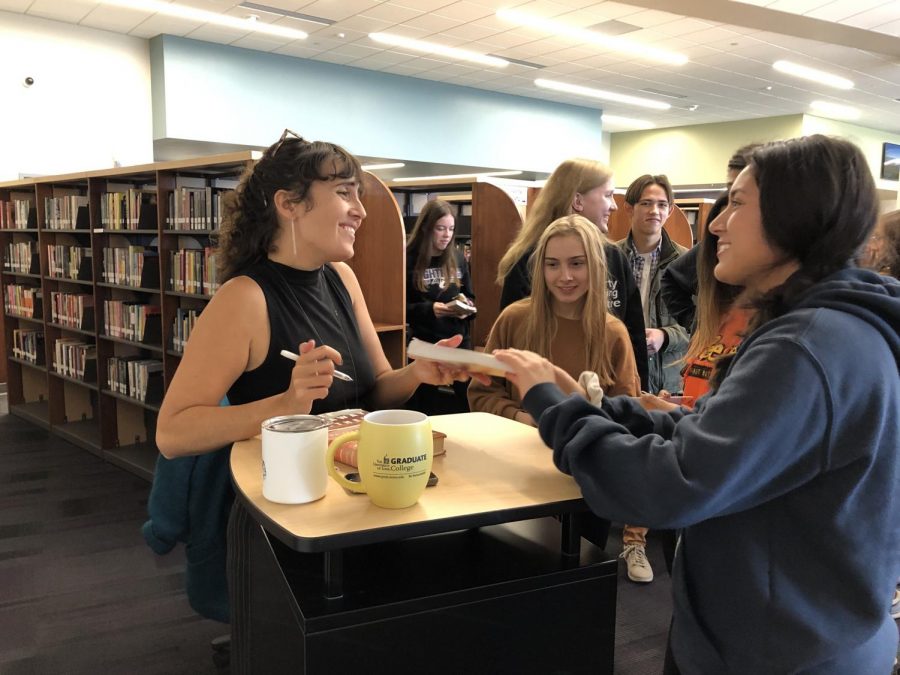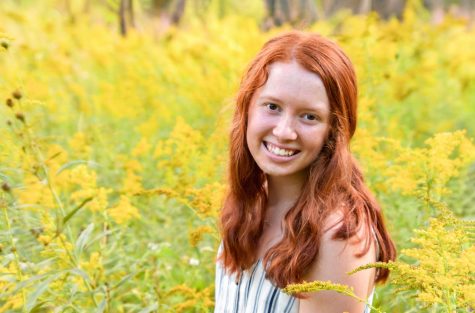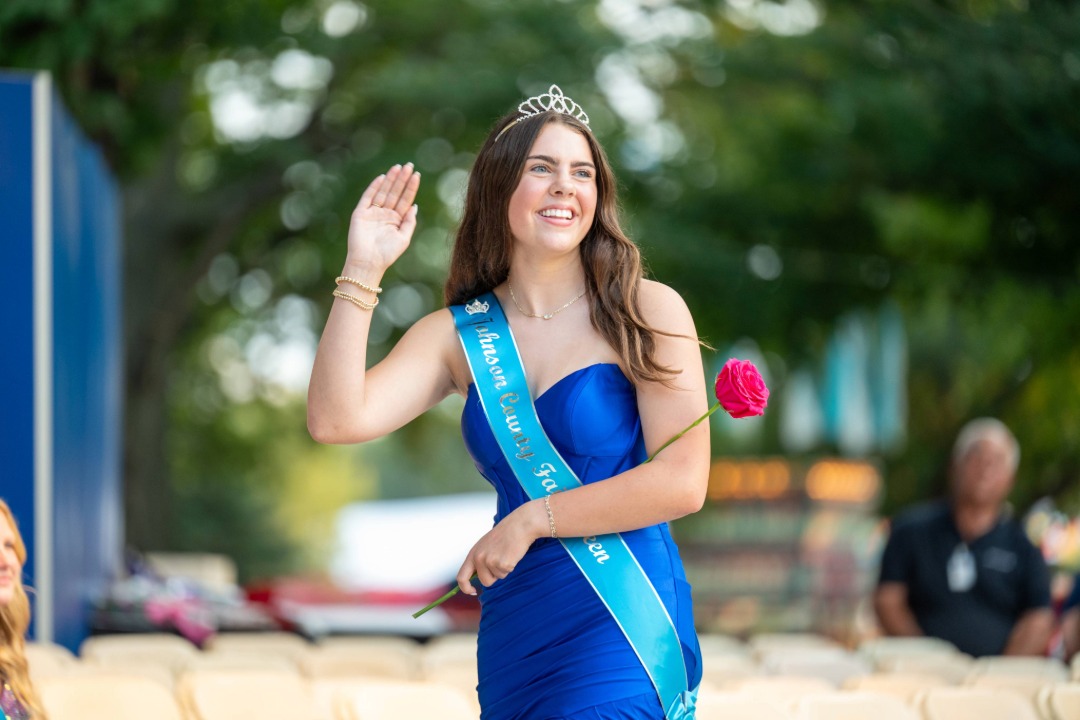Author of ‘The Far Away Brothers’ Visits Liberty High
On October 4th Lauren Markham visited Liberty High School for a book talk discussing ‘The Far Away Brothers’.
After talking about why she wrote the book and discussing students questions, Lauren Markham signed students books.
October 8, 2019
On October 4th Lauren Markham visited Liberty High School for a book talk discussing ‘The Far Away Brothers’. The book was chosen by the University of Iowa Center for Human Rights and Iowa City UNESCO City of Literature for their annual “One Community, One Book 2019”. Amy Weismann, director of the University of Iowa Center for Human Rights, received the funds to donate books to students and set up the talk. Will Coghil-Behrends at the University of Iowa College of Education also donated 25 books. Students enrolled in Composition l and ll and US Literature Honors from Dr. Borchert, Dr. Schott, and Mrs. Brown classrooms came to ask questions and listen to Markham speak.
Markham is an author who lives in Berkeley, California and has focused her writing on issues of educational rights, comparative education, international education, and forced migration. In college, she studied abroad in Uganda which is where she first became interested in the intersection between education and forced migration. While at first Markham was thinking about living there and permanently doing that for a living, she decided that isn’t where she saw herself as most effective.
Because Markham grew up in the United States and was familiar with the system, she decided to work in the US to best help others specifically with refugee resettlement in Oakland, California. This included helping people who came from other countries with applying for a social security card, receiving medicare and enrolling in school.
From that, Markham helped start-up Oakland International High School and was a part of the advisory board. The school is home to around 400 newly arrived immigrants from over 35 different countries. While working as an administrator at Oakland International, Markham also worked in journalism, focusing on questions related to immigration rights.
She loved how journalism allowed her to blend her creative interests along with answering her questions. Markham started the whole process in the Spring of 2012 when she took a trip down to South Texas for 8 days and wrote a piece called “First the Fence, Then the System”. The long article discussed the apprehending, detaining and litigating of kids who were coming to the US alone with no papers.
“Someone was investing in me as a journalist. That was both thrilling and really new and felt really intimidating. There was also this responsibility of ‘I have to do a really good job of telling this story’. I [didn’t] know much about this and I really needed to learn more,” said Markham.
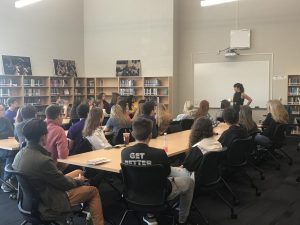
Students listen as Lauren Markham introduces what first made her interested in writing the book.
This piece left her with more questions about immigration and specifically unaccompanied minors. ‘Why were all these young people coming and why so many?’ While Markham felt the first article answered a lot of questions, it left her asking even more.
After working on a few other stories, one of her colleagues at Oakland International brought up that they needed to do something about all of their students who had deportation proceedings. Because of national law, no school is allowed to ask a student of their immigration status, which made it hard for Markham to recognize the need of many students and their families. She finally began to see her previous writing and job at the school come together.
The true story is based on two unaccompanied minors, twin brothers, who traveled from El Salvador looking for safety from gang violence. All of the information in the book was confirmed details, interviews, videos and stuff she had seen personally from visiting El Salvador and South Texas.
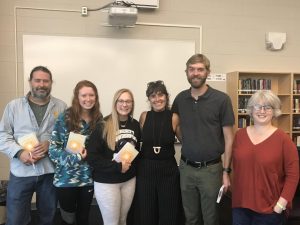
From left to right: Mr. Shott, Grace Brusegaard, Kaylee Deisbeck, Lauren Markham, Nicholas Borchert, Amy Weismann all pose for a picture after the book talk.
“I couldn’t even try to be objective because every day I was advocating for these young people, going to court with them, trying to find lawyers, and advocating at the city council in Oakland to put more money towards legal representation and mental health for these young people,” stated Markham. “My life as a journalist and life as an educator kind of [came together] overnight and I felt like I still had so many questions… My students were also telling me [they] didn’t feel the representations of [them] were fair or complete. That’s why I decided to write the book.”



